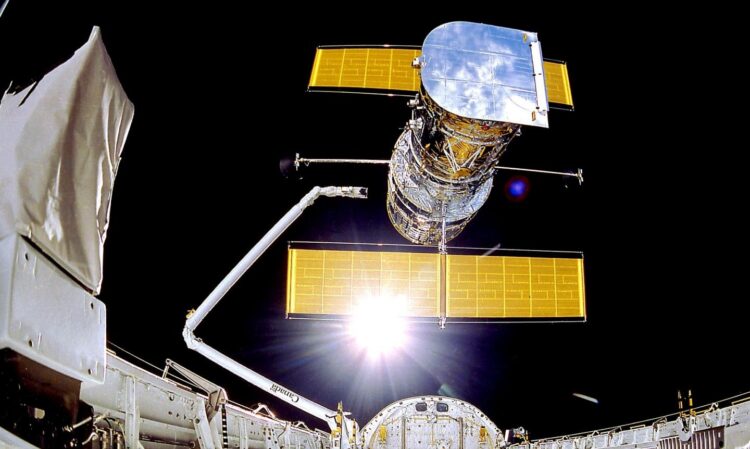NASA is continuing to diagnose a problem with the payload computer on the Hubble Space Telescope after completing another set of tests on June 23 and 24. The payload computer halted on June 13 and the spacecraft stopped collecting science data. The telescope itself and its science instruments remain in good health and are currently in a safe configuration.
The spacecraft has two payload computers, one of which serves as a backup, that are located on the Science Instrument and Command and Data Handling (SI C&DH) unit. There are various pieces of hardware which make up both payload computers, including but not limited to:
- a Central Processing Module (CPM), which processes the commands that coordinate and control the science instruments
- a Standard Interface (STINT), which bridges communications between the computer’s CPM and other components
- a communications bus, which contains lines that pass signals and data between hardware
- and one active memory module, which stores operational commands to the instruments. There are three additional modules which serve as backups.
Additional tests performed on June 23 and 24 included turning on the backup computer for the first time in space. The tests showed that numerous combinations of these hardware pieces from both the primary and backup payload computer all experienced the same error – commands to write into or read from memory were not successful.
Since it is highly unlikely that all individual hardware elements have a problem, the team is now looking at other hardware as the possible culprit, including the Command Unit/Science Data Formatter (CU/SDF), another module on the SI C&DH. The CU formats and sends commands and data to specific destinations, including the science instruments. The SDF formats the science data from the science instruments for transmission to the ground. The team is also looking at the power regulator to see if possibly the voltages being supplied to hardware are not what they should be. A power regulator ensures a steady constant voltage supply. If the voltage is out of limits, it could cause the problems observed.
Over the next week, the team will continue to assess hardware on the SI C&DH unit to identify if something else may be causing the problem. If the team determines the CU/SDF or the power regulator is the likely cause, they will recommend switching to the backup CU/SDF module and the backup power regulator.
###
Launched in 1990, Hubble has been observing the universe for over 31 years. It has contributed to some of the most significant discoveries of our cosmos, including the accelerating expansion of the universe, the evolution of galaxies over time, and the first atmospheric studies of planets beyond our solar system. Read more about some of Hubble’s key scientific contributions.
Media Contact
Claire Andreoli
[email protected]
Original Source
https:/





